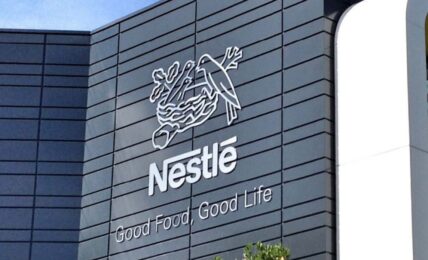Senior supply chain executives expect to see a range of benefits from sustainability initiatives, according to a new survey from global professional services firm EY, including increased revenue and profitability, customer loyalty and improved employee quality of life.
Despite the perceived benefits, however, the survey found that many companies lack a business case to support supply chain development, and roughly half struggle to measure and report on their sustainability progress.
For the report, EY surveyed senior supply chain executives at 525 large corporations in North, Central and South America, across sectors ranging from retail, consumer packaged goods, health providers, and life sciences, to government, technology, energy, manufacturing, mobility, and food and agriculture.
The report comes as as businesses increasingly expand the focus of their sustainability efforts to encompass their supply chains, and as governments and regulators introduce measures requiring companies to assess and address adverse human rights and environmental impacts in their value chains. In addition to growing pressure from investors, customers and employees, several emerging regulatory sustainability disclosure regimes will require companies to measure and report on issues in their supply chains ranging from greenhouse gas emissions to human rights impact.
As sustainability issues come increasingly into focus, the EY study indicated that they are high on the priority list for supply chain executives, with 80% reporting that they are increasing their emphasis on ESG initiatives. While meeting regulatory compliance and pressure from partners and suppliers were among the executives’ main drivers for improving supply chain sustainability, however, financial factors took the top spot, with 61% citing cost savings as the top motivator for embarking on sustainability efforts.
Similarly, nearly all (99%) of executives said that they see increased revenue as a benefit of their supply chain sustainability efforts, with 70% reporting that they have already seen or expect to see this benefit within the next 1 – 3 years. Other benefits from sustainability initiatives experienced or expected included increased customer loyalty (100%), better management of operational risks (100%), improved employee quality of life (98%) and enhanced efficiency and productivity (100%).
While the executives were clear in their interest in improving supply chain sustainability and the anticipated benefits, supply chain visibility issues formed a major challenge for many in the implementation of initiatives and strategies, according to the report. The survey found that global supply chain challenges have pushed visibility to the top priority spot for the executives this year, in order to better assess risk and plan for disruptions, yet only 37% of respondents reported having seen increasing visibility.
Raj Sharma, EY Americas Consulting Vice Chair, said:
“Despite having a long-term vision for ESG, supply chain executives struggle to embark on a sustainability journey due to lack of visibility from the products and services they source to their distribution centers and delivery operations.”
Investments in visibility-enhancing tools would likely improve the companies’ capabilities to improve supply chain sustainability efforts, according to EY. Currently, only 50% of companies surveyed said that they report basic KPIs on supply chain sustainability and risks, and nearly half reported that they struggle to measure the return on sustainable supply chain activities. A third of respondents said that their companies lack a business case for support sustainable supply chain development, and around 20% are lacking a sustainability strategy.
The report highlighted around 10% of respondents classified as “trailblazers,” who were further along in their sustainability efforts, and stand out in their technology adoption to provide better visibility. The survey found that this group is already experiencing benefits from their initiatives including higher levels of improved employee quality of life relative to the rest of the peer group, as well as improved customer loyalty, and decreased employee turnover. Relative to the rest of the group, these leading organizations are less focused on cost savings as the primary motivator of supply chain sustainability, with 88% expecting or already experiencing higher revenue near term, and 43% anticipating a higher share price within 1 – 3 years.
Sumit Dutta, EY Americas Supply Chain and Operations Markets Leader, said:
“Cost savings is not the only benefit supply chain leaders should expect from sustainability initiatives. To make the strongest business case, they should focus on the more immediate impact that a sustainable supply chain can have on their organization as a whole – including revenue, risk management, customer loyalty, brand reputation, innovation, employee quality of life, and talent retention.”
Click here to access the
The post EY Survey: Lack of Visibility Holding Back Supply Chain Sustainability Efforts appeared first on ESG Today.



